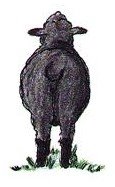i'm sure they are grateful for the sheep, but is it worth the value of a man? and i hope we set a better example on how military incidents are handled ect.; than say following suit of the u.s. military.
Afghan relatives of checkpoint victim interviewed by Canadian investigators
March 25, 2006 KANDAHAR, Afghanistan (CP) - Six relatives of an Afghan man, shot to death last week by a Canadian soldier at a checkpoint, were interviewed for the first time Wednesday by military investigators.
KANDAHAR, Afghanistan (CP) - Six relatives of an Afghan man, shot to death last week by a Canadian soldier at a checkpoint, were interviewed for the first time Wednesday by military investigators.
Statements were taken from those members who witnessed the tragedy and came following an impromptu visit with the commanding officer of the Canadian provincial reconstruction team (PRT).
This was also the first time the family of Nasrat Ali Hassan met face-to-face with a senior Canadian official after accusing soldiers of firing indiscriminately and refusing to rush the dying man to hospital.
By all accounts, it was cordial meeting, free of rancour and recrimination
"They just wanted to meet me and chat with me. We chatted," said Col. Tom Doucette.
"I again expressed my condolences on behalf of the Canadian government and the Canadian people."
Shortly after the March 14 shooting, Doucette wrote an official letter of sympathy, which was delivered to Ali Hassan's widow by a senior member of the Afghan police service. Earlier this week, the Canadian government expressed its remorse in a more traditional Afghan way by spending $100 on a gift, a sheep.
As compensation for the shooting, the family said it wants to immigrate to Canada and for the federal government to pay for educating the tin pot-maker's six children.
Ali Hassan's eldest brother, oldest son, two other male relatives, his daughter-in-law and grandchild showed up at the PRT base unannounced Wednesday, asking to see Doucette.
Canadian authorities had refused a family request to meet in their home because of security concerns.
Despite the obvious cultural and language barriers, Doucette said he believed he established a bond with the family by talking about his own grief at the recent passing of his mother.
"At the end of the day, we've all gone through the loss of a loved one and it's tragic," he said.
"They were very appreciative that I took the time to speak with them in this impromptu fashion."
The family made no demands during the brief meeting, said Doucette.
They later spoke with military investigators who are collecting eyewitness accounts of the tragedy.
Ali Hassan and several members of his family had piled into a three-wheel rickshaw taxi after visiting friends late into the evening. On the way home, they rounded a traffic circle where the Afghan National Police had set up a checkpoint.
Accounts of what happened next differ greatly, depending upon who is telling the story. The Canadian military said the rickety vehicle blew past the barricade and ignored warnings to stop, something the family denied.
After the shooting, a Canadian Forces medic tended to the wounded 45-year-old, who may have been hit by a ricocheted bullet. The family claimed it begged for Ali Hassan to be taken to a hospital but those entreaties were ignored, a point the military disputed.
A spokesman for the National Investigative Service, an independent military police agency, said it could be a while before the conflicting accounts are sorted out.
"I don't have a timeline," said Capt. Mark Giles, in a conference call from Ottawa with reporters in Kandahar.
"We're going to do it as quickly as we can do it, but it has to be done properly."
Two investigators with the agency are working on the case in Kandahar and have yet to finish interviewing all witnesses.
In the weeks leading up to the shooting, Canadian troops had faced a variety of roadside improvised explosive attacks and suicide car bombings.
Soldiers are allowed to open fire if they legitimately believe they or their unit are in danger.
Giles refused to say how much weight investigators will give to the turbulent and deadly atmosphere in this troubled desert community when deciding whether charges are warranted.
Saturday, March 25, 2006
afghan relatives get a sheep for compensation?
Posted by audacious at 25.3.06
Subscribe to:
Post Comments
(Atom)










































0 comments:
Post a Comment